Key Takeaways
-
Hornet Diet: Hornets feed on sugary substances like nectar, fruit juices, and sap, as well as insects like garden pests, bees, and wasps.
-
Attraction Factors: Fallen fruit, sugary drinks, and a high insect population in your yard can attract hornets to your property.
-
Prevention Tips: Clean up food spills, secure trash bins, manage garden pests, and seal off potential nesting areas to deter hornets.
-
Signs of Infestation: Look out for frequent hornet activity, buzzing sounds, or visible nests; contact professionals for safe removal.
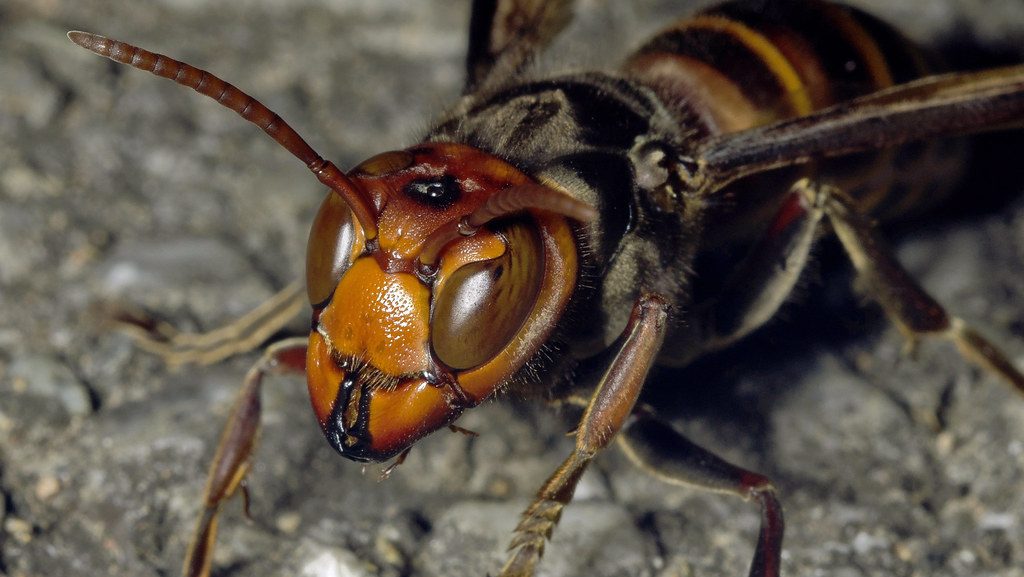
What does a Hornet eat? Their Diet
You might think hornets are about causing trouble, but here’s a secret: they eat a bit of everything. Yes, these guys are omnivores. That means they’re looking for sugary stuff to fuel their energy and protein to grow their colonies.Sweet Tooth Alert! What Attracts Hornets to Sugar
- Let’s start with the obvious. Hornets love sugar. Do you know how you feel when that leftover cake or fruit is sitting around, just calling your name? Hornets are no different. They’re drawn to all things sweet, like:
-
Flower Nectar: Hornets sip nectar from blooming flowers, giving them energy for flying and food collection.
-
Fruit Juices: Ripe or fallen fruits like apples, pears, and peaches are irresistible to hornets, especially in late summer and fall.
-
Tree Sap: Hornets peel tree bark to access sap—like tapping into a natural juice box.
-
Human Snacks: Unattended soda cans or sweet treats attract hornets instantly—they can detect sugary items from a distance.
Protein: The Bug Hunters
- But hornets aren’t just about the sweets—they’ve got a protein side, too. They hunt. A lot. They’re pretty skilled predators, and their protein diet consists of:
-
Garden Pests: Hornets act as natural pest control by hunting flies, caterpillars, aphids, and crickets around your garden.
-
Bees & Wasps: Hornets also target other stinging insects, including bees and wasps, with the Asian giant hornet known to destroy entire bee colonies.
3. The Whole Feeding Cycle
Here’s where it gets a little fascinating—hornets have a teamwork approach to eating. The adults don’t eat the prey they hunt. Instead, they chew it up and feed it to their larvae. Think of it like a fast-food delivery service. The larvae, in return, produce a sweet liquid (kind of like a syrup), and that’s the adult hornet’s reward. It’s like a sticky little trade-off that keeps everyone fed.Why Are Hornets Visiting Your Yard?
Let’s be honest: we’re all about enjoying our outdoor spaces without being dive-bombed by hornets. So, what’s pulling them in? What are they looking for in your yard?- Sugary Stuff: Fallen fruit, rotting vegetables, tree sap, or sweet drinks left unattended on your picnic table. If you’re leaving out food, hornets are coming to check it out.
- Insects to Hunt: They need insects to feed their growing colonies. If your garden is full of pests, hornets will likely pay a visit. A hornet isn’t going to go hunting in a barren yard—it’s the insects that draw them in.
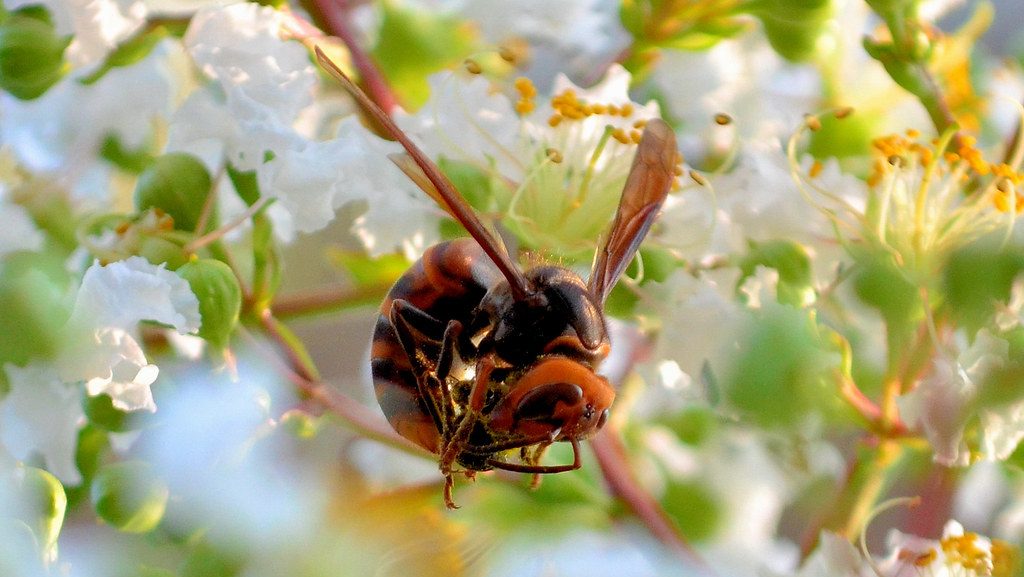

Not getting a solution?
Get your free pest control estimate today!What Insects Do Hornets Eat?
Hornets are opportunistic predators that play a critical role in controlling insect populations. They hunt a diverse range of insects and arthropods to fulfill their dietary needs, particularly for protein. Here are some of the common prey that hornets target:
Wasps
Hornets may prey on other wasp species, showcasing their predatory dominance within the wasp family.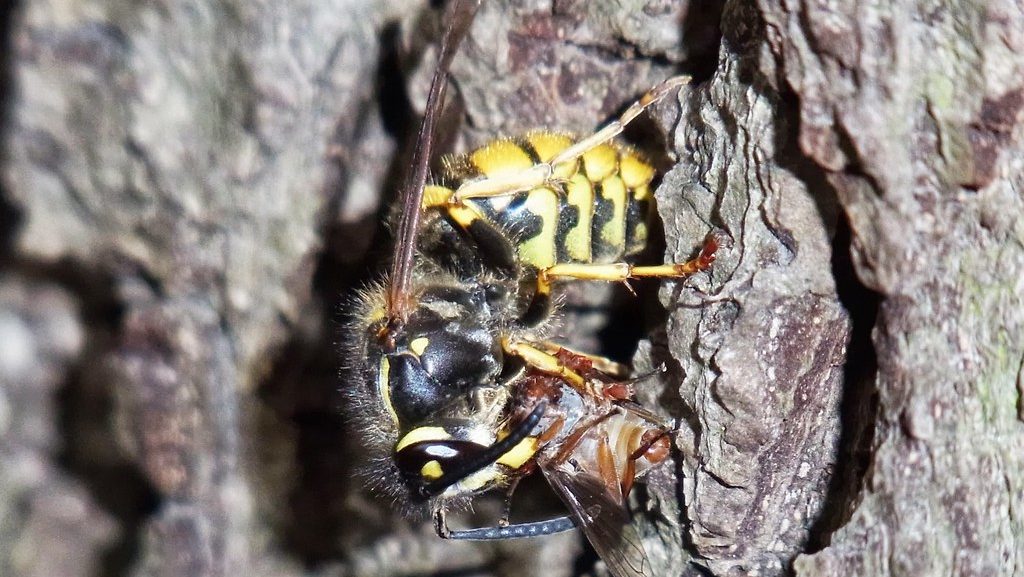
Flies
They actively hunt various types of flies, including houseflies, fruit flies, and other smaller dipterans.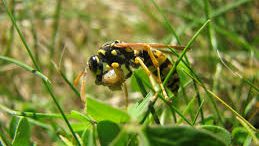
Caterpillars
Hornets are efficient at hunting caterpillars, which helps reduce caterpillar populations that can damage plants and crops.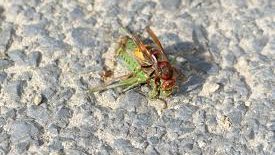
Grasshoppers and Crickets
These insects are rich in protein and often become targets for hornets during the breeding season.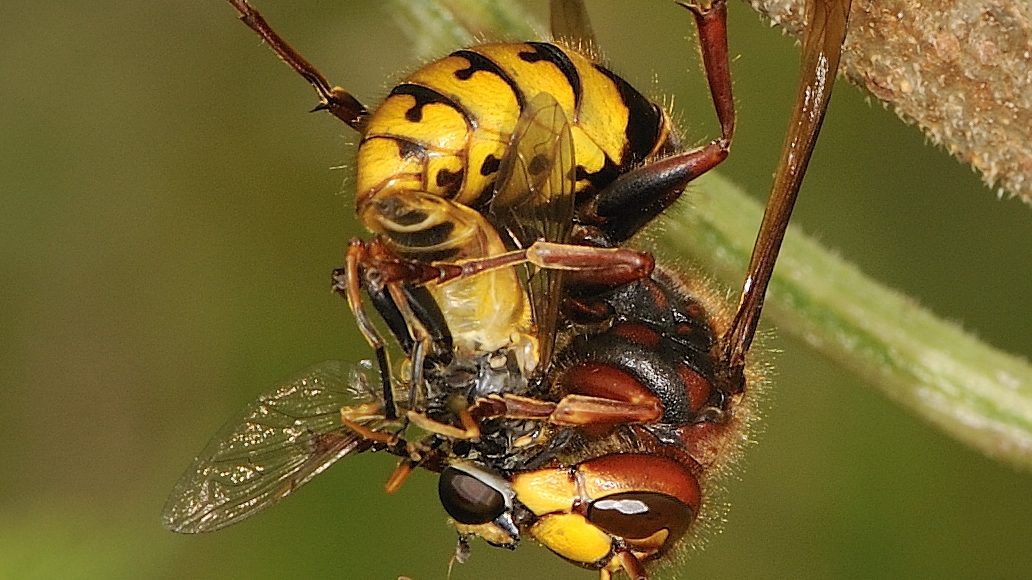
Moths and Butterflies
Hornets prey on both adult moths and butterflies as well as their larvae when accessible.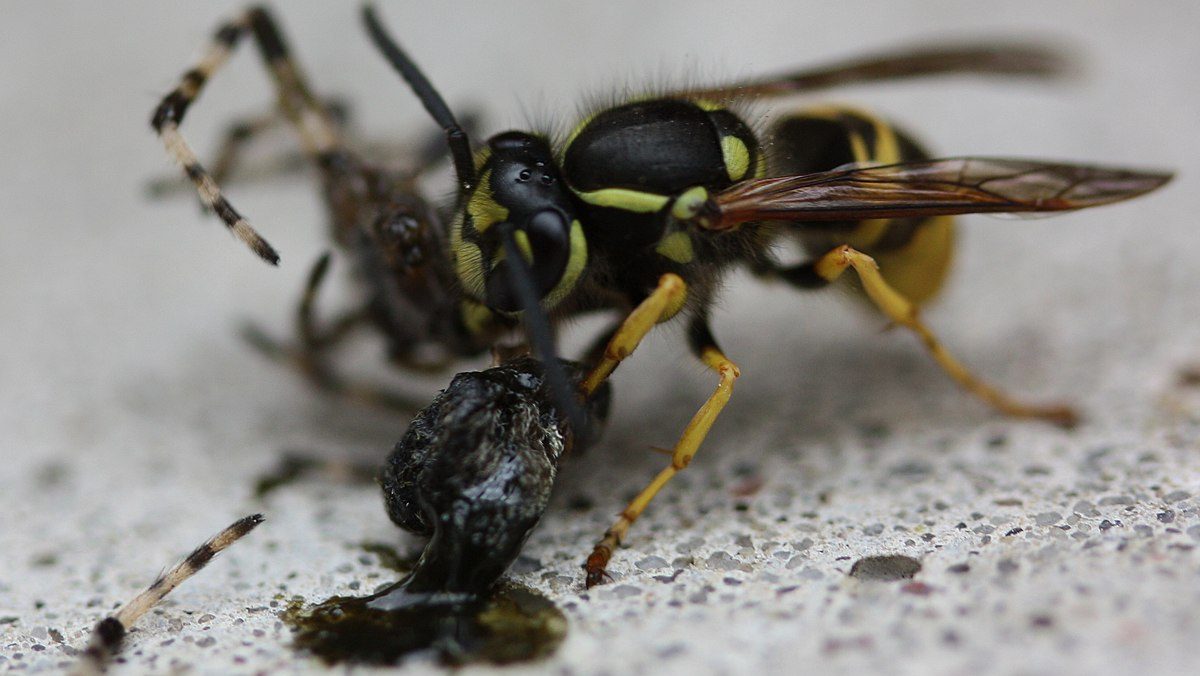
Spiders
Although not insects, spiders are part of the hornet’s diet due to their availability as protein-rich arthropods.Why Understanding Hornet Diet Is Important?
Understanding what hornets eat can help you prevent infestations and reduce the risk of attracting hornets to your property. If you’re noticing hornets buzzing around your yard, there are a few things you can do to reduce their food sources and avoid encouraging them to nest nearby. Hornets are attracted to human food, especially sugary treats and drinks.Tips to Prevent Hornets from Infesting Your Outdoor Spaces
-
Clean up outdoor areas: Ensure that you clean up any food scraps, sugary drinks, or trash that could attract hornets.
-
Cover food and drinks: When eating outside, always cover your food and beverages. Hornets can be especially attracted to open cans or cups of soda.
How to Manage Hornets Around Your Home?
Managing hornets near your property requires a cautious approach. Frequent sightings of hornets or consistent buzzing sounds around a specific area indicate the presence of a nest. Early action can help minimize risks.Tips to Manage Hornets Around Your Home
-
Use Commercial Hornet Traps: Reduce hornet activity for smaller issues by strategically placing traps in problem areas.
-
Clean Up Sugary Spills and Food Residues: Deter hornets effectively by ensuring all spills and residues are cleaned promptly, especially in outdoor areas.
-
Contact Professional Pest Control Services: For larger nests or aggressive infestations, seek help from experts to ensure safe and thorough removal.
-
Avoid DIY Nest Removal Without Proper Knowledge: Attempting to remove a nest without the right equipment or expertise can provoke hornets and increase the risk of stings.





